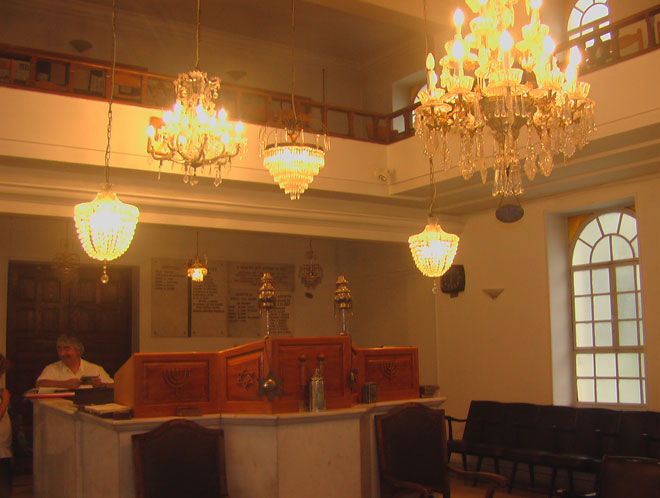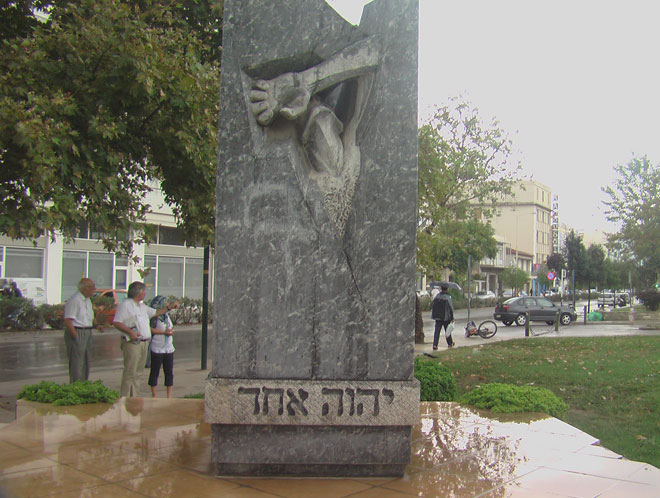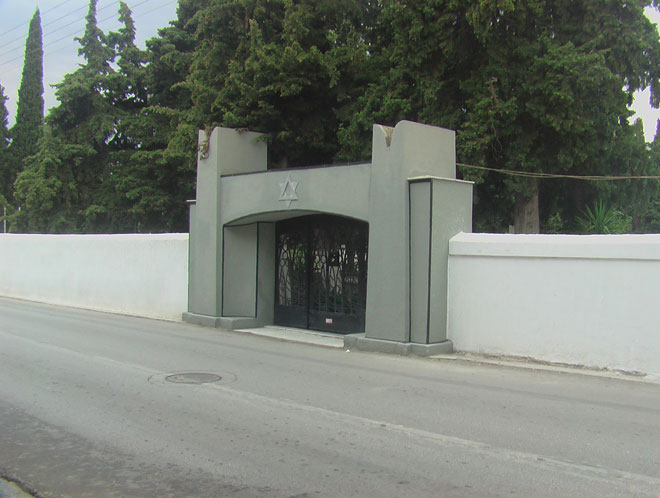A port city, the Jewish community has been present in Volos since the Antiquity era. Probably from the 2nd century BC, ancient tombs attesting to it, according to historians. But the certainties between experts on the exact moment concerning this city are not yet established.

Benjamin de Tudela noted the presence of Jews in the region in his famous travel accounts. Over the centuries, a number of them worked in trade-related activities, including textiles and tobacco. They largely participated in the economic development of Volos.
The city had 35 Jewish families in 1850. A synagogue was built there between 1865 and 1870. A school of the Alliance Israélite Universelle opened there a year earlier. But it closed in 1878.
Following anti-Semitic acts at the turn of the century, much of the community settled in Salonika. But the city still had a thousand Jews in 1913.

Of the 882 Jews present in Volos in 1940, many managed to escape before the arrival of the Axis armies, with the help of locals and religious authorities. During the occupation by Italian troops, the Jews were relatively safe. However, when the German troops arrived, 130 Jews were arrested by the Nazis in March 1944 and deported.
Many Jews joined the Resistance, including aiding the British Army in its actions against the Germans. Rabbi Moshe Pessah worked in coordination with Archbishop Joachim Alexopoulos and the National Liberation Front to find a sanctuary for the Jews of Volos in the surrounding mountainous regions and the villages there. Thanks to this effort, three-quarters of the were saved.
The synagogue was destroyed by the Nazis and rebuilt after the war, but was nevertheless damaged again by an earthquake in 1955. A smaller synagogue was built there and is still in operation today.

The old Jewish cemetery was located in the Neapolis district. The new Jewish cemetery is at the intersection of Taxiarhon and Paraskevopoulos streets.
A Holocaust Memorial is located where the ancient synagogue used to be.
In the aftermath of the war, 565 Jews lived in Volos. A figure that declined to 210 in 1967. Only a hundred are part today of the Jewish community .
As in many European cities, and particularly in many Greek cities, Volos has been the victim of anti-Semitic acts. These have been fuelled by significant movements exploiting the conflict between Israel and Hamas since the pogrom of 7 October. Among these numerous acts, a Jewish cemetery in Volos was vandalised.